|
|
|
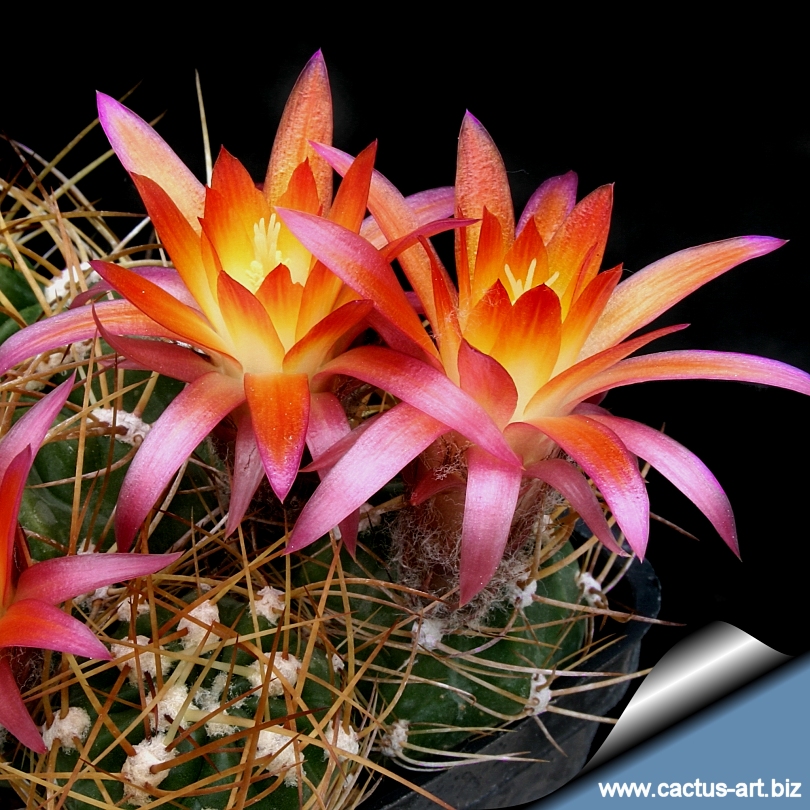
Lobivia maximiliana
var. westii KK437
This species
is one of the most remarkable Lobivia, with long
curved yellow spines.
The flowers are very eye-catching
red, orange, yellow, white & fuchsia !
|
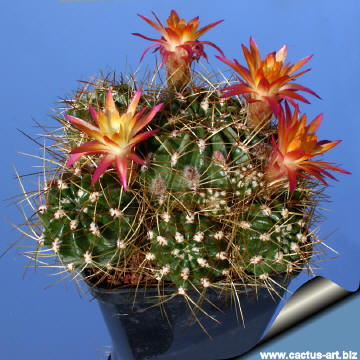 |
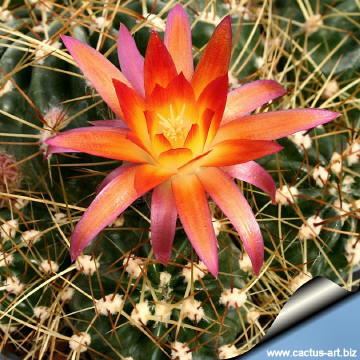 |
|
.
|
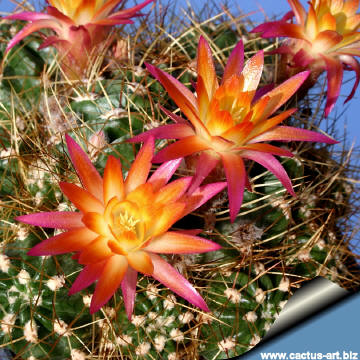 |
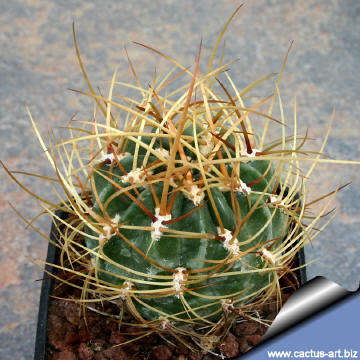 |
|
.
|
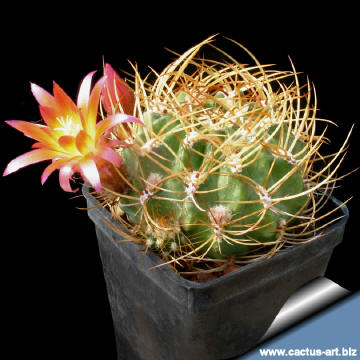 |
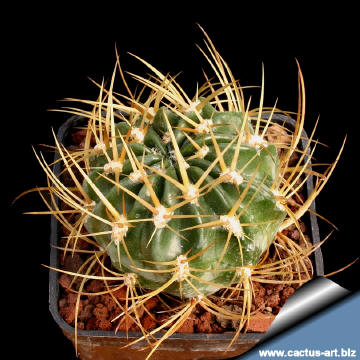
|
|


Advertising
|
|
|
|
|
Family:
Cactaceae (Cactus
Family) Lobivia westii Hutchison
Published in: Cact. & Succ. Journ. Amer. 26. 81., 1954 Currently accepted
Scientific name:
Echinopsis maximiliana Heyder ex A. Dietrich 1846.
Conservation status: Listed in
CITES appendix 2.
Etymology: For James west
(1886-1939) well known Californian horticulturist, who accompanied
Goodspeed on the first Andes Expedition.
Synonyms:
- Echinopsis maximiliana Heyder ex
A. Dietrich 1846
- Lobivia maximiliana (Heyder ex A.
Dietrich) Backeberg
In: 10 Jahre Kakteenforschung 1927-1937 28, 1937
- Echinopsis maximiliana subsp. westii
(Hutchison) G. D. Rowley 1982
- Lobivia maximiliana ssp. westii
(Hutchison) W. Rausch
In: Lobivia 1: 36, 1976
- Lobivia caespitosa Britton & Rose
1922
- Echinopsis maximiliana subsp. caespitosa
(Britton & Rose) G. D. Rowley 1982
- Lobivia hermanniana Backeberg
1933
- Lobivia westii Hutchison 1954
- Lobivia charazanensis Cárdenas
1957
- Lobivia cariquinensis Cárdenas
1959
- Lobivia pseudocariquinensis
Cárdenas 1961
- Lobivia miniatiflora F. Ritter
1963
- Lobivia cruciaureispina Knize
1969
- Lobivia sicuaniensis Rausch 1971
- Lobivia intermedia Rausch 1971
- Echinopsis pentlandii var maximiliana
Lem. 1860
- Echinopsis tricolor A. G. Z. 1848
- Lobivia pentlandii var maximiliana
Backbg 1951
- Lobivia lauramarca Rauh a Backbg.,
Descr. Cact. Nov. 1956/28
- Lobivia corbula (Herrera) Britton
& Rose 1922
- Lobivia maximiliana var. corbula
(Herrera) Rausch Lobivia 1975
|
Description: At fist solitary but will start
soon to branch at the base, older plants forms dense, large mats.
Stem: Globose to short cylindrical, somewhat umbilicate at apex,
bright green 5-15(-20) cm long, 5 cm in diameter.
Ribs: 12-20 deeply crenate, rather high, ribs straight, notched
tuberculate.
Areoles: With dull white wool, ± 2 cm apart.
Spines: 4-12 acicular, not differentiated as centrals and
radials, somehow curved backward yellow, amber or brown, unequal 3-5 cm
long (or less).
Flowers: Funnel-form, on the sides, very colorful red-violet with
orange to white-yellow throats, 4-8 cm in diameter. The tube is greenish
to reddish up to 4 cm long. The tepals are narrowly obovate abruptly
acute spreading, outer ones often violet coloured. Stamen and style
short
Fruit: Globular, dull green, reddish or maroon, woolly 1-2(-4) cm
long and in diameter.
Seeds: Black.
|
|
|
|
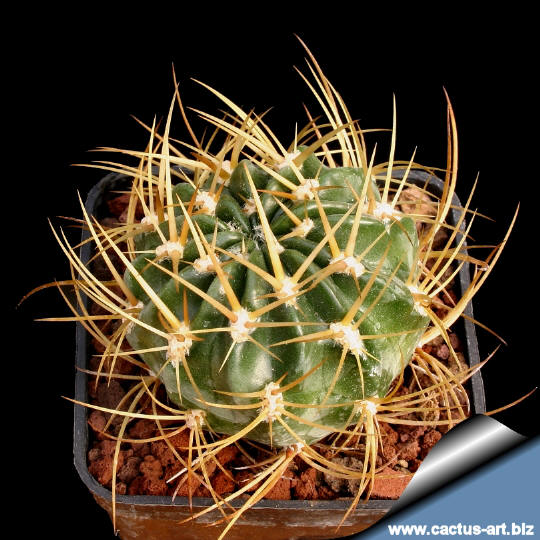 Cultivation: It is a summer
grower species that offers no cultivation
difficulties. Lobivia akersii has a fairly large
tap root, and should be kept in a deep pot with a very draining mineral
substrate. Water regularly in summer (but do not
overwater ) keep dry in winter. Feed with a high potassium fertilizer in
summer. Repot yearly until reaching about 100 mm in size, then
every two or three years will suffice. Repotting is best done at the end
of winter but can be done at other times. Do not water for a couple of
weeks after repotting to reduce risk of root rot via broken roots.
Repotting will increase size of stems. It
is quite cold tolerant if kept dry (hardy to -5° C). Outside
it need a bright exposure, full sun or half shade in summer,
inside it needs bright light, and some direct sun.
Propagation: Seed, grafting, cutting.
(seldom produces offsets)
Photo of conspecific taxa,
varieties, forms an cultivars of Lobivia (Echinopsis) maximiliana.
(This taxon has lots of synonyms (like
most Lobivia) whit several controversial varieties and subspecies):
|
|